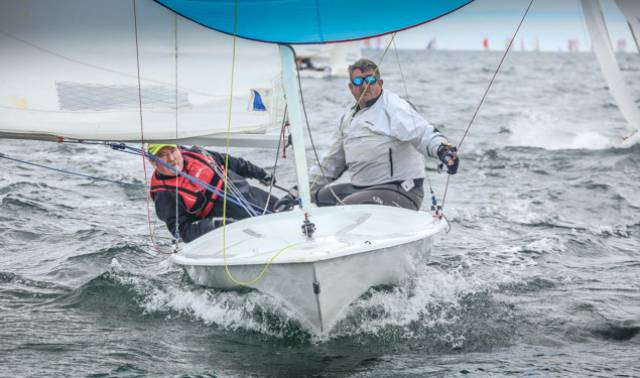Dublin Bay Sailing Club has saluted its largest one design keelboat and dinghy fleets on the eve of the 2018 season.
Boat entries everywhere are a perennial problem for organisers but that's not the case for either the Water Wag or Flying Fifteen fleets on Dublin Bay this season.
'Bravo the Water Wags and the Flying 15s who have - very conscientiously – heeded our previous appeals to get their entries to the secretariat in good time', DBSC Commodore Chris Moore told a meeting of DBSC's 22 classes this week.
Currently – at just a fortnight from the first race – Moore reported that only slightly more than 'half of the 320 boats who race with DBSC have registered'. 'The situation of IRC certs is infinitely worse', he added.
The oldest dinghy class in the world, the clinker–built Water Wag, with a history dating back to 1899, boasts 32–boats for the 2018 season to outstrip any other dinghy class on the Bay. Seymour Creswell is this year's DBSC Wag Class Captain.
Meanwhile, the evergreen Flying Fifteen class, based at the National Yacht Club, has 29 boats entered, according to the just published 2018 DBSC Yearbook. The keelboat class has recently launched a new website for its hosting of the 2019 World Championships on the Bay and celebrates its season start under FF Class Captain Mick Quinn at a pre–season reception at the East Pier Club on April 19th.































































